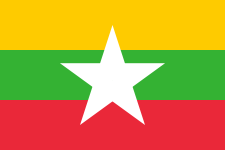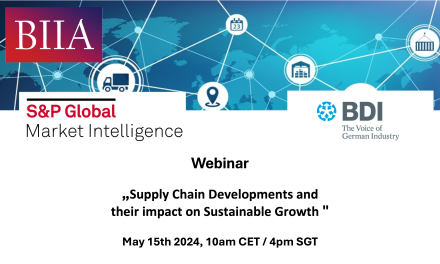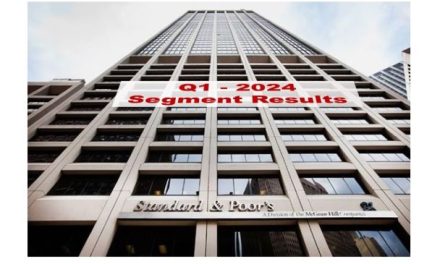Worldbox Country Risk Climate November 2023
MYANMAR
Summary
| Overall Risk Score 12 (Stable)
Political risk: Stable 4/10 Economic risk: Stable 4/10 Commercial risk: Stable 4/10 The risk assessment of a country is made up of 3 components, being Political, Economic and Commercial. Each component is scored out of 10 with 1 being the highest risk and 10 the lowest. |
ESG Risk: 3/10 (Negative)*
*Environmental, social and governance (ESG) issues are becoming increasingly important to companies, investors and consumers in Southeast Asia. That is why we are now preparing a separate ESG score and section with our quarterly country risk reports. We explain how each country rates, looking at the E, S and G individually, and outline recent developments. |
Political Risk – Stable at 4
Myanmar faces a prolonged civil war as the military, which has been in power since 1962, struggles to maintain control of the country. A rebel insurgency and campaign of civil disobedience underway since the 1 February 2021 military coup that ousted Aung San Suu Kyi’s elected government poses an increasingly potent threat to the junta’s rule. It seems increasingly likely that the period of military rule is entering its final phase.
The acting leader of Myanmar’s government-in-exile, Duwa Lashi La, claims that resistance forces are in control of about 60% of the country’s territory and poised to threaten the ruling junta in key strongholds, Bloomberg reported in September 2023.
That claim appears credible given that an assessment by an independent body last year said that while the junta remains in control of major cities, it retains stable control of just 17% of the country’s total land area.
Meanwhile, a correspondent for The Diplomat who visited Myanmar in September 2023 concluded that:
“Unlike previous phases of military rule, this time around, the resistance movement is powerful, involving a larger number of functionaries and covering larger swathes of territory, which the junta failed to envisage. Neither side is willing to negotiate, and both are determined to fight to the end.”
The military has pledged to hold new elections. However, the USA, the United Kingdom and Canada are among the countries that have condemned this plan arguing they will be neither free or fair. The government has passed a law prohibiting anyone previously convicted of a crime or serving a prison term from joining a political party. This disqualifies many senior members of the National League for Democracy (NLD), including the party leader, Aung San Suu Kyi and President Win Myint, both serving lengthy sentences on politically-motivated charges.
Economic Risk – Stable at 4
Given the civil war raging in the country it’s very difficult to gain an accurate picture of what is happening to the economy. The junta hasn’t published monthly economic data since mid-2022 and figures from the World Bank and other organizations are at best guesstimates of what is happening in the country and could well be wildly inaccurate.
It is known that war is severely disrupting economic activity, which was already badly hit by the impact of the pandemic. The military takeover in February 2021 has caused foreign investment and tourist numbers to plummet. In January 2022, the World Bank reported that the economy was 30% smaller than it would have been but for the coup and the COVID-19 pandemic.
Myanmar has been suffering rolling blackouts amid an energy shortage since 2022. In October 2023, the Irrawaddy publication reported that power outages in the commercial capital Yangon, including in its industrial zones, are worsening, with residents and business owners saying the length of blackouts has at least doubled since mid-August. Major cities, including Yangon, Mandalay, and Naypyitaw, are facing power outages while industrial zones across the country “are bracing for crippling power cuts and surging fuel prices,” the World Bank said its September report ‘In The Dark: Power Sector Challenges in Myanmar’.
The junta claims to have received 600,000 tourists in the first seven months of 2023 but tourism operators in the country have refuted the figures saying that virtually no Western tourists are coming to Myanmar. Some tourists have arrived from China, Thailand and other Asian countries but Japanese visitors are now absent.
Foreign investment in Myanmar fell 60% in the first quarter of this year compared to the same quarter in 2022, according to official figures. The war, the government’s pariah status, the power outages and arbitrary changes in regulations are deterring foreign investors. Total foreign investment for fiscal year 2020-21 was US$3.7bn, down 20% from US$4.9bn in fiscal 2019-20. In fiscal 2022-23, the first full fiscal year during which the junta had control of the economy, Myanmar received only US$1.6bn of foreign investment, with Singapore, the biggest investor, accounting for US$1.1bn. China and Thailand were the second- and third-largest investors.
Commercial Risk – Stable at 4
Myanmar is rated as one of the most difficult countries in the Asia–Pacific region in which to do business even prior to the military coup. It ranked 165 among 190, according to the 2021 World Bank Ease of Doing Business guide. This ranking has almost certainly fallen sharply since that report.
Since the coup, the banking system has been disrupted significantly. Sending money out of Myanmar is extremely difficult, with much stricter oversight by the central bank, harming international trade and commerce. Access to and use of the internet is more difficult, with internet shutdowns common, and the disruptive effect on business activity has been magnified by the coronavirus and the associated need for remote working. Privacy and data-security concerns have also increased. Entering, leaving and moving around the country are difficult, with safety concerns about staff a major issue given the deteriorating security situation in many areas of the country.
Meanwhile, government decision-making and the administrative process are much slower and less predictable, affecting even routine matters such as tax administration and visa processing. Senior government personnel in many positions have changed, while new policies have been adopted, and the civil disobedience campaign has severely disrupted administrative processes.
The rule of law has suffered further setbacks. Even prior to the pandemic, businesses reported very low trust in the independence of the judiciary, with bribes and irregular payments in exchange for favorable judicial decisions very common.
Corruption – already a significant challenge – has worsened as living standards have plummeted. Myanmar ranks 157th out of 180 countries in Transparency International’s 2022 Corruption Perceptions Index. The Myanmar Corruption Report by GAN says that corruption is endemic in Myanmar, presenting companies with high risks. The weak rule of law and complex and opaque licensing systems are serious barriers to investment and trade in Myanmar.
A lack of adequate infrastructure also provides significant challenges to operating in Myanmar. Sanctions levied since the 1960s have caused Myanmar’s infrastructure to become outdated. Much of the country’s electrical grid relies on hydropower, and factory operation, for example, becomes unreliable during dry seasons. While there has been significant growth in the country’s paved road network, the vast majority of the network – around 60% – remains unpaved. Meanwhile, port capacity is limited and the railway service depends on aging and unreliable equipment.
November Bulletin
Political Risk – Stable at 4
A major reshuffle that saw some top military officials replaced in September 2023 is raising questions about the strength of the regime led by the army chief, Min Aung Hlaing. Lieutenant General Soe Htut and Lt-Gen Moe Myint Tun, two senior officials, were removed from the junta amid allegations of corruption. Some analysts believe the scale of the reshuffle suggests that the regime is having trouble exercising authority.
The junta has ordered four reshuffles since seizing power in 2021, but observers say that stripping the two of their positions and expelling them from the military council was the most severe action yet taken against the regime’s generals since the takeover.
Given the hardening of attitudes on both sides and the atrocities that have been committed by the military government, it is very difficult to see a political settlement to the conflict. It is also hard to see the military winning either. The most likely prospect is that the civil war will continue for a few more years at most before the junta eventually collapses. However, the end could come much sooner than that given reports of loss of morale and division among the army.
Economic Risk – Stable at 4
Economic conditions stabilized in the first half of 2023, according to the World Bank’s Myanmar Economic Monitor published in June 2023. The Monitor added that the exchange rate remained steady, while inflation in food and fuel prices eased. Most indicators, according to the Monitor, suggest economic activity is slowly increasing, albeit from a very low base. Manufacturing output and new orders have risen quickly, sales of domestic products have picked up, while passenger and freight transport volumes are rising, the publication added.
In its June Monitor, the World Bank forecast GDP would increase by 3% in the year to September 2023, still around 10% lower than in 2019. The absence of a more pronounced rebound is indicative of the severe supply and demand constraints that continue to limit economic activity, it added. Over the next one to two years, the World Bank’s baseline projection is for the economy to continue to expand slowly.
The World Bank also projected that average inflation would ease to 14% in the twelve months ending September 2023, and to decline further in the following year. But supply shortages and increased reliance on central bank financing of budget deficits are likely to keep inflation higher than it otherwise would be over the medium term, it added.
The World Bank expects the current account deficit to widen to almost 6% of GDP in the year ending September 2023, up from 3.6% in the previous year. Exports are projected to remain subdued through to September 2024 as global demand remains tepid, but an increase in remittances is expected to provide some support, added the Bank.
Meanwhile, the Bank estimates that the fiscal deficit widened to 5.4% of GDP in the year ended April 2023, reflecting modest increases in spending and reductions in revenue. Lower non-tax receipts have been broadly offset by increased energy and tax revenues while expenditure growth has been driven by defense spending and State Economic Enterprises, particularly in the energy sector.
Commercial Risk – Stable at 4
Commercial risk has increased significantly since the coup, amid a deterioration in the ability of government ministries and the banking and legal systems to function effectively. Consequently, many foreign companies are leaving. In September 2023, for example, two major European fashion brands, H&M and Zara, said they would stop sourcing goods from the country over labor rights violations.
Nikkei Asia reports that the government is facing a potential crisis of dwindling revenue, as overseas energy companies pull out of natural gas operations in the country, squeezing the ruling
Environmental, Social and Governance (ESG) – Negative at 3
The United Nations’ Sustainable Development Goals (SDGs) are recognized as a beneficial framework for responsible investment. The Sustainable Development Report from Cambridge University Press assesses the progress of all 193 UN Member States on the SDGs. It provides a useful means of ranking Southeast Asian countries on their ESG progress.
Myanmar is ranked 103 out of 163 in the 2022 report with a score of 64.3.
Environment – The country faces severe environmental challenges. Parts of Myanmar are suffering from erratic weather and warming temperatures due to climate change. The average daily temperature in Myanmar increased by about 0.25 degrees Celsius per decade between 1981 and 2010, according to a 2017 report published by the civilian government, the United Nations and the World Wildlife Fund (WWF). Another climate impact assessment report published by the Red Cross in April 2021 says that a rising number of tropical cyclones are hitting Myanmar, while mangrove forests, which had protected coastal communities from storm surges and erosion, have been cleared for shrimp farms and paddy fields.
The Red Cross’s report also warned that the Ayeyarwady Delta, known as the country’s rice bowl, will likely be affected by rising sea levels. Other major crop areas in the country’s central region will experience “more heatwaves, droughts, flash floods and landslides”, according to the report.
Deforestation is also a major challenge. According to the United Nations, the country’s forests fell by almost 15 million hectares between 1990 and 2015. Much of the timber – often dubbed “blood teak,” as it funds the military junta – is exported illegally. Meanwhile, 529 square kilometres of forest was destroyed for mining operations between 2001 and 2020.
Social – According to openDemocracy, workers’ rights in Myanmar have suffered decades of abuse and neglect under military rule. Consequently, basic protections are neither adequately established by law nor respected in practice. The media platform adds that:
“Joining a worker organization continues to carry significant personal risk in Myanmar. Trade union activity in many of Myanmar’s industrial zones has encountered fierce resistance and reprisals from employers Consequently, many workers are intimidated by the potential consequences of participating in a union despite their legal right to do so.”
Governance – Another area where Myanmar scores very poorly, reflecting high levels of corruption and the lack of the rule of law. The IFC – a sister organization of the World Bank – reported in 2018 that the current level of governance standards in most firms in Myanmar was very low. It added that governance structures at Myanmar firms remain largely underdeveloped with poorly functioning boards, antiquated management control processes, and low levels of transparency. Governance levels are likely to have deteriorated even further since.
November Bulletin
Environmental, Social and Governance (ESG) – Negative at 3
Nikkei Asia reported in May 2023 that pressure from investors concerned about environmental, social and corporate governance (ESG) issues, coupled with U.S. and European Union sanctions, is encouraging international companies to pull their cash out of Myanmar.
The news agency reported that Indian conglomerate Adani Group had announced the sale of a port project underway in Myanmar for just US$30 million after critics said money from the project had been diverted to companies affiliated with Myanmar’s military, which ousted the country’s elected government in February 2021.
In April, Justice for Myanmar raised a question on the operations of Heineken, Carlsberg and ThaiBev, as they “are paying huge sums in tax.” Foreign companies that have invested in Myanmar are still considering what action to take after two years, reported Nikkei Asia.
Latest economic data

f – forecasts.
Source: World Bank/Asian Development Bank, except where stated.
Useful Links
https://www.worldbank.org/en/country/myanmar/publication/myanmar-economic-monitor-reports
https://www.transparency.org/en/cpi/2021
https://www.imf.org/en/Countries/MMR
https://www.adb.org/countries/myanmar/mainhttps://asiatimes.com/
About Worldbox Business Intelligence
Worldbox Business Intelligence, headquartered in Switzerland, is a Global API data solution provider of business intelligence and used in data analytics.
With the Global API solution Worldbox Business Intelligence enables clients and partners also a frictionless real time onboarding, KYC and compliance verification while rapid global investigations are provided, if needed.
Worldbox Business Intelligence provides global data in a standardised structure to more than 200 Million companies worldwide. The global network of subsidiaries, branches and desks allows to precisely and efficiently collect data and target key territories for clients and partners.”
“Worldbox Business Intelligence – Bringing Swiss Precision To Data”
Copyright (C) 2023 Worldbox Business Intelligence. All rights reserved.
Our mailing address is:
Worldbox Business Intelligence
Breitackerstrasse 1
Zollikon
Zurich 8702
Switzerland





























